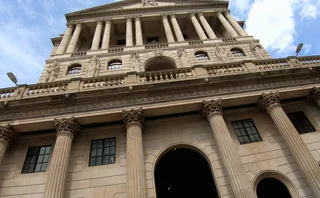

Breaking with Behnam: inside the dysfunction at the CFTC
Policy and personality clashes have left the chairman isolated and slowed rulemaking activity to a crawl
For US Commodity Futures Trading Commission chairman Rostin Behnam, the irony must have been galling – even if he didn’t show it.
As a particularly contentious open meeting of the CFTC on May 10 drew to a close, Democrat commissioner Christy Goldsmith Romero appealed to the press not to focus on partisan divisions within the agency.
Partisan disputes would seem to be the least of Behnam’s problems.
Minutes earlier, Goldsmith Romero had sided with Republicans on the commission to amend a proposed
Only users who have a paid subscription or are part of a corporate subscription are able to print or copy content.
To access these options, along with all other subscription benefits, please contact info@risk.net or view our subscription options here: http://subscriptions.risk.net/subscribe
You are currently unable to print this content. Please contact info@risk.net to find out more.
You are currently unable to copy this content. Please contact info@risk.net to find out more.
Copyright Infopro Digital Limited. All rights reserved.
As outlined in our terms and conditions, https://www.infopro-digital.com/terms-and-conditions/subscriptions/ (point 2.4), printing is limited to a single copy.
If you would like to purchase additional rights please email info@risk.net
Copyright Infopro Digital Limited. All rights reserved.
You may share this content using our article tools. As outlined in our terms and conditions, https://www.infopro-digital.com/terms-and-conditions/subscriptions/ (clause 2.4), an Authorised User may only make one copy of the materials for their own personal use. You must also comply with the restrictions in clause 2.5.
If you would like to purchase additional rights please email info@risk.net
More on Regulation
During Trump turbulence, value-at-risk may go pop
Trading risk models have been trained in quiet markets, and volatility is now looming
Bank of England mustering unit to model system-wide stresses
Permanent team at UK supervisor will work on buy- and sell-side interactions
Regis-TR and the Emir Refit blame game
Reporting overhaul was marred by problems at repositories, prompting calls to stagger future go-live dates
Iosco pre-hedging review: more RFQs than answers
Latest proposals leave observers weighing new clampdown on pre-hedging
FCMs welcome CFTC margin rule ring-fencing clarification
Final rule on separate accounts replicates no-action relief as Republicans strip out gold plate
Stuck in the middle with EU: dealers clash over FRTB timing
Largest banks want Commission to delay implementation, but it’s not the legislator’s only option
Treasury clearing timeline ‘too aggressive’ says BofA rates head
Sifma gears up for extension talks with incoming SEC and Treasury officials
Rostin Behnam’s unfinished business
Next CFTC chair must finish the work Behnam started on crypto regulation and conflicts of interest







